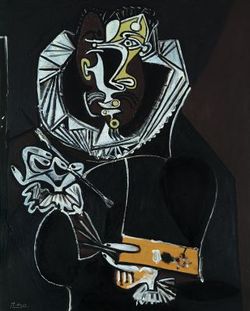|
The word ‘ethics’ is understood and used in three different ways.
a. laical: direct moral questions, moralizing statements ‘Ethics and morals are the same.’ ‘Ethics makes direct moral questions or statements.’ (e.g. ‘Is euthanasia right?’, ‘Bigamy is wrong.’) b. descriptive: the description of moral questions and statements ‘Ethics and morals are not the same.’ ‘Ethics describes the direct moral statements.’ (e.g. ‘Jesus says the foundation of right attitude is love.’) c. critical: evaluation of moral questions and statements ‘Ethics and morals are not the same.’ ‘Ethics explains the direct moral questions.’ (e.g. ‘Inconsistency leads to unprincipledness.‘)  Social and political philosophies became possible and necessary when the systematic forming of society and jurisdiction became possible and necessary. Based on what we know it was the ancient lawmakers (e.g. Pythagoreans, Lycurgus, Solon) and Plato who first examined the possibility of a new social organization. Aristotle was the first to collect and analyze constitutions and to attempt to build politics on logical grounds. That was more than 2000 years ago… Defining society (our public life and interdependence) and politics (our public affairs and tasks) are interrelated the same way as questions with answers, and problems with solutions. What is the problem with society? The basic task of politics depends on this question. What is the principle task? How I see society depends on this question. Many in the modern political life have been disillusioned from politicians and through this from politics, and one consequence of all this is that some politicians deny being politicians and so they talk politics by denying talking politics. In addition to that, more and more people confuse politics with wrong politics, even though politics means nothing other than the ‘managing of public affairs’. Therefore making politics is unavoidable and each and every issue of each and every person includes the political and social importance of that particular issue. It is a sovereign political will (e.g. in the modern world) not to consider the political importance of every affair and to stop at the borderline of personal life when dealing with public issues. It is a separate political problem where to draw the line between private and public affairs.  The philosophy of history researches the logics and value perceptions of the models about the in-time patterns of occurrences, in other words the different approaches about history. Even the concept of ‘history’ indicates that the stories are not only interconnected by a chronological order of successiveness, but also by some sort of explanatory, universal logic. The philosophy of history researches the questions ‘What is every story about in general?’ and ‘What is the reason of occurrences?’. The answer is a fundamental narration which is the framing story (context) of all other stories (episodes). Without such narration life would fall apart into unrelated episodes and all episodes would fall apart into unrelated moments. The rejection of ‘history’ is the rejection of mankind’s ‘common faith’ and the ‘meaning of life’ (the desire for values and the search for values). Therefore ‘history’ is rejected only in exceptional cases (e.g. by those against change, by the defenders of ‘status quo’), it is rather that the different versions of the framing story are debated. Nevertheless, a universally comprehensive narrative is both methodologically and politically problematic. |
authors:
George Alexander Sveinn
"Baraju"
contents:
archives:
September 2010
topics:
All
|



 RSS Feed
RSS Feed
